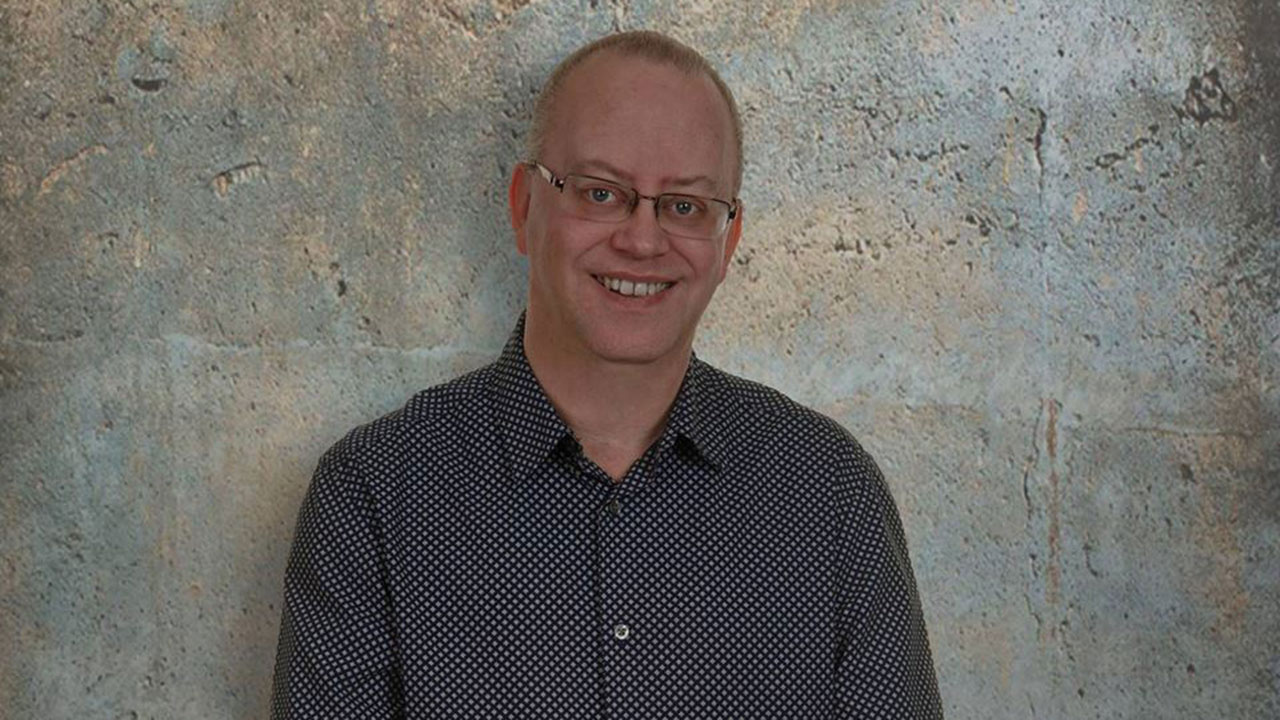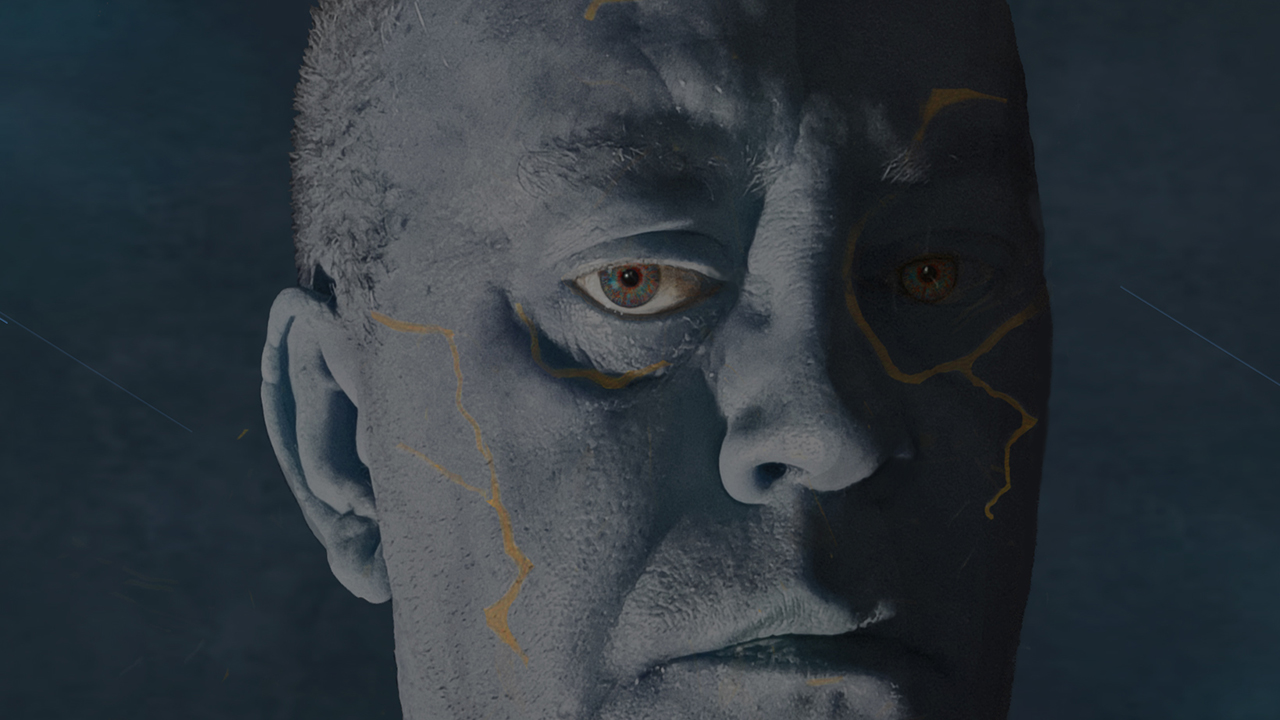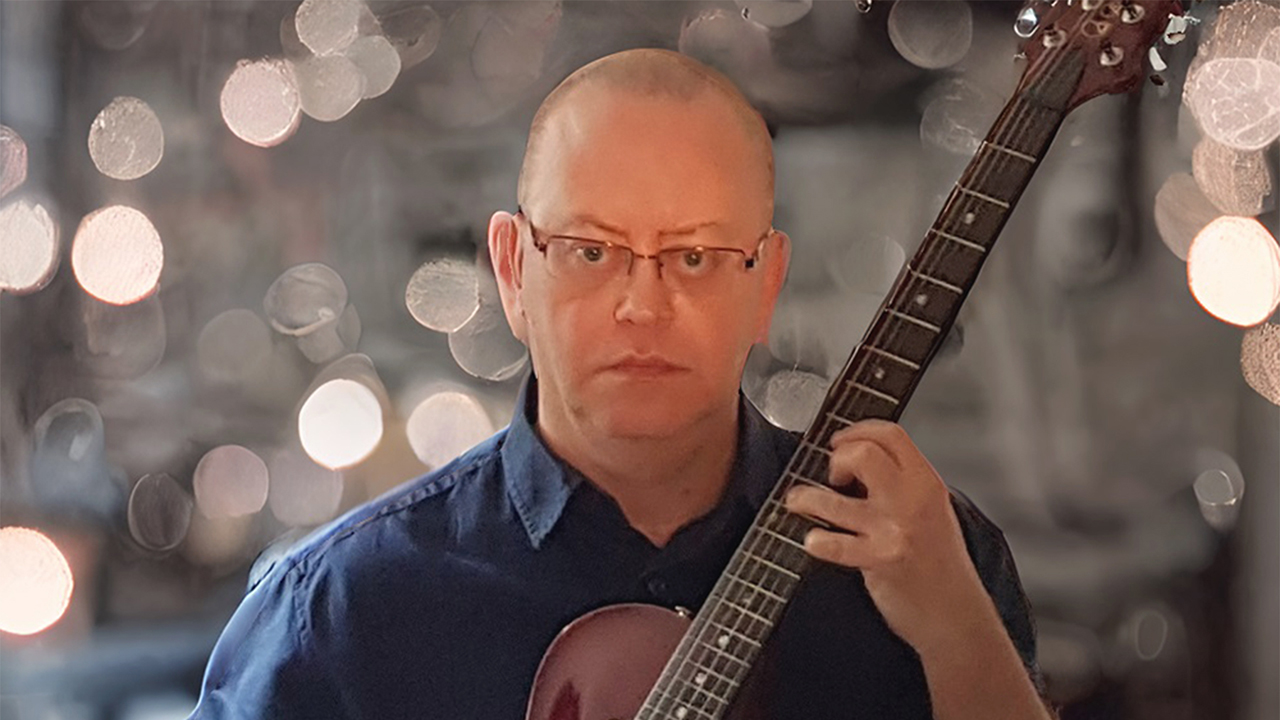Assassins, superstitions and the work of Rudyard Kipling have all informed the lyrics on John Holden’s latest album Proximity & Chance, and his guestlist includes John Hackett, Sally Minnear and others.. The British songwriter tells Prog about working with Billy Sherwood, recreating orchestras on a budget and why he keeps a cautious distance from most streaming platforms.
Books, movies and popular song have always insisted it’s true: if you want something enough, it will happen for you. Then again, to suggest it’s all down to dedication and determination isn’t always helpful – doesn’t it inadvertently, insultingly suggest that musicians who are still struggling just aren’t trying hard enough?
Creatives needing inspiration to keep plugging away could take heart from Cheshire-based songwriter John Holden, who launched his career in earnest well into middle age, managed to recruit some major prog names to play alongside him, and has now released his fifth album in six years. All without being able to hold a tune himself on the vocal front: “My voice would strip paint,” he insists. “Honestly awful!”
His new LP Proximity & Chance might also be his best yet, wrapping intriguing topical themes and philosophical food for thought within stirring symphonic prog sounds and compelling songcraft. Not bad for a Yes fan who firmly parked his own musical ambition the best part of 40 years ago.
“I was in a few bands in my early 20s that went into the studio to record a few things in the early 80s,” he says. “But then things like getting married and jobs and mortgages came along and the whole of the musical side just disappeared.”
He eventually ended up running his own recruitment business, only for his dormant passion to belatedly awake. “Around the turn of the millennium I realised I missed playing music. So I bought myself some nice instruments – which I’d never been able to afford when I started – and I began messing around again.”
He used a digital audio workstation (DAW) to record his own material; and when his wife’s yoga teacher needed some music to accompany classes, he offered his services. It turned out she was also a singer, and lent her vocals to Holden’s slowly-evolving songs.
As a fan of Big Big Train, he sent their engineer Rob Aubrey some tracks. “He ripped them to pieces!” says Holden with a grin. “And rightly so.” However, Aubrey’s constructive criticism led Holden to focus on upping his game production-wise, and soon he was putting together what would become his debut album, 2018’s Capture Light.
But while doing so, he chanced his arm again, this time by reaching out to his teenage heroes’ latter-day bassist, Billy Sherwood. “I knew he did production work and I wanted to hear what my stuff would sound like professionally mixed and mastered. So I sent him some tracks. He said he really liked them, but I couldn’t afford him! He said, ‘Can’t you get your label to pay?’ I said, ‘What label?’
“He apologised and said he’d thought my demo was done in a professional studio. That was encouraging! Then he said since I didn’t have much money, he’d do the whole thing for the same rate he usually charges per minute. Really kind of him.

“So he worked on the tracks and came back saying, ‘I hope you don’t mind – I thought the guitar solo could be improved, so I’ve done one for you. I’ve added some bass as well.’ Wow!”
So it came to pass that Sherwood contributed to Capture Light, and has also played on several albums since. Holden found the collaboration “opened doors” to talent such as Oliver Wakeman, who appears on the current album, alongside Luke Machin (The Tangent, Karnataka) on guitar, Tiger Moth Tales singer Peter Jones and Sally Minnear on vocals, plus Silent Skies’ Vikram Shankar on piano, and John Hackett on flute.
Not a bad line-up – but on Proximity & Chance, it’s Holden’s vision that remains front and centre on a record whose themes concern the way humanity blindly puts its faith in superstition. People may use phrases like “touch wood” or avoid labelling the 13th floor of buildings, while failing to appreciate the role that fortuitous accidents of geography have played. Holden speaks of being inspired by Professor Brian Cox’s documentaries on how our planet offered the right conditions to nurture human life
Another theme is hubris, as addressed on the tapestry of pastoral folk, hard rock riffs and spiritual lament heard on The Man Who Would Be King (based on the Kipling stories), and Agents, which revisits the Russian agent poisonings in Salisbury a few years ago (‘If you run we will find you... this tourist trap is set’).
Musically he’s also been building a fuller sonic experience, creating a captivating soundscape for the theatrical Burnt Cork And Limelight, wherein piano, timpani and orchestral arrangements create something that could have come from The Phantom Of The Opera, while putting the listener into the head of the assassin who targeted Victorian actor William Terriss.
“I can’t hire a 60-piece orchestra,” Holden explains, “so I have to simulate those sounds. I listen to a lot of music that uses sample libraries and string pad effects to do that – to my ear, it sounds a bit fake. So I’ll record, say, eight separate violins, then mix them together. To me it makes for a truer sound. Trouble is, it takes ages!”
Still not a full-time artist, Holden wakes at 5am to begin work on his music before starting his day job. And despite being a multi-instrumentalist, he is also only too happy to invite outside input. “I know my limitations. If the song needs a really virtuoso piece of playing on guitar, or keyboard, I’ll just get in touch with Dave Bainbridge or Luke Machin; or if I want some amazing keyboards on there I’ll ask Vikram Shankar.
“For vocals, if I can use Pete Jones or Joe Payne or one of these people, it elevates it straight away. I’ll talk them through what I’m after, but I’ll also say, ‘Send me what you would do with it.’ And sometimes I’ll rearrange the whole piece to incorporate that.”

Maybe that’s one of the factors helping Holden’s go from strength to strength. Yet you may find your options to hear it limited, compared to the on-tap basis that of other artists’ music. He hasn’t played live, because, he explains, “to recreate my music you’d probably need more people onstage than would be in the audience. I’m not in this to make money – but I’m also not in it to lose money.”
For similar reasons, if you search his name on Spotify, you’ll draw a blank. “I refuse to put my stuff up for streaming,” he says. “It might do OK for you if you’re Taylor Swift, but at my level it’s like a turkey voting for Christmas.”
For the price of a couple of drinks, though, Proximity & Chance is a VFM investment, and Holden deserves all the remuneration his listeners can offer him, given the inspiring way he built a body of work from nothing. “I’m saying, ‘Look, if I can do it, anyone can do it,’” he says. And who would have the heart to deny him?


